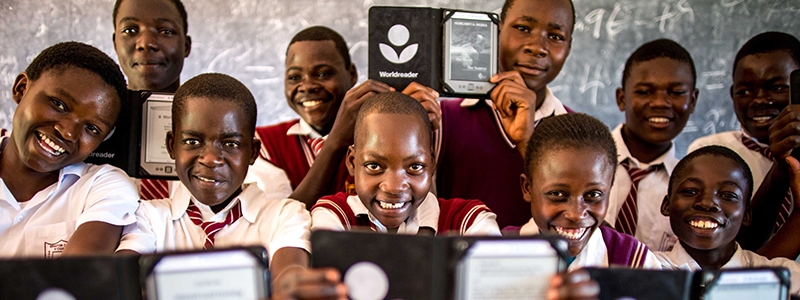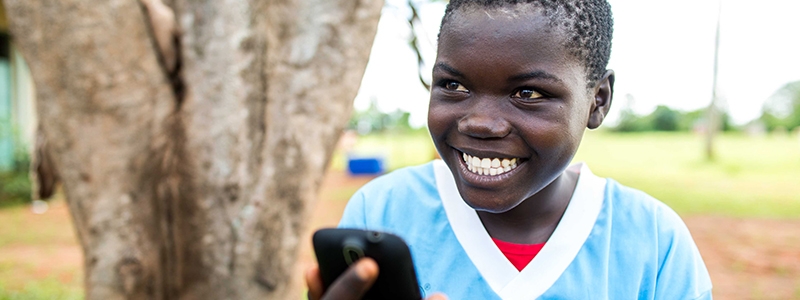Problem: There are approximately 800 million illiterate people in the world and 250 million children in elementary school who, according to Unesco, do not have basic reading and writing skills. Sub-Saharan Africa alone is host to more than 200 million children living in places where they do not have access to books, which is due, mainly, to the high cost of delivering them. Children that cannot read face very limited opprtunities in life. Created in 2010 by David Risher and Colin McElwee, the project aims to erradicate illiteracy in low-income countries by donating e-readers that are capable of storing thousands of books.

Solutions: The project trains professors and students in the early years of elementary school to use e-readers. It also helps teachers to cultivate the childrens' love of reading during their first years of schooling. These devices offer students access to thousands of local stories that are culturally relevant to them, in addition to international classics. The content can be accessed by the students’ families via a cell phone app. Doris, who has benefitted from the project, lives in a slum in the city of Kibera, Kenya. She says that she feels safe and free when reading stories from her e-book. She enjoys reading as a form of entertainment; moreover, she dreams of practicing medicine in the future once she has graduated. At a school in Ghana, the project changed the reality of the classrooms by allowing each student to access more than 3,500 e-books. The school's library offered very few books, each of which had to be shared amongst three children during class. Non-governmental organizations and other initiatives can purchase packages of e-readers, called Blue Boxes, to take the project to schools and communities. Each package costs US$ 6,500. There is also the option of purchasing small solar panels with which the devices can be charged.

Outcomes: With just a few months of using the e-readers, the children have shown great improvement in their reading comprehension and fluency. The e-readers have improved the childrens' reading and writing abilities as well as the frequency with which they read. The project inspires creativity and self-confidence whilst also making lessons more interesting for students and teachers. The project also creates a sustainable ecosystem in order to promote reading within the communities. Each person that benefits from the project acquires more knowledge is therefore empowered and thereby gains more control over the improvement of their quality of life. E-readers have been made available in Ethiopia, Ghana, Kenia, Malawi, Nigeria, Rwanda, South Africa, Tanzania, Uganda, Zambia and Zimbabwe. With approximately 15,000 book titles available, the project serves around 185,000 people a month in 54 countries. The majority of them use their cellular phones to read.







